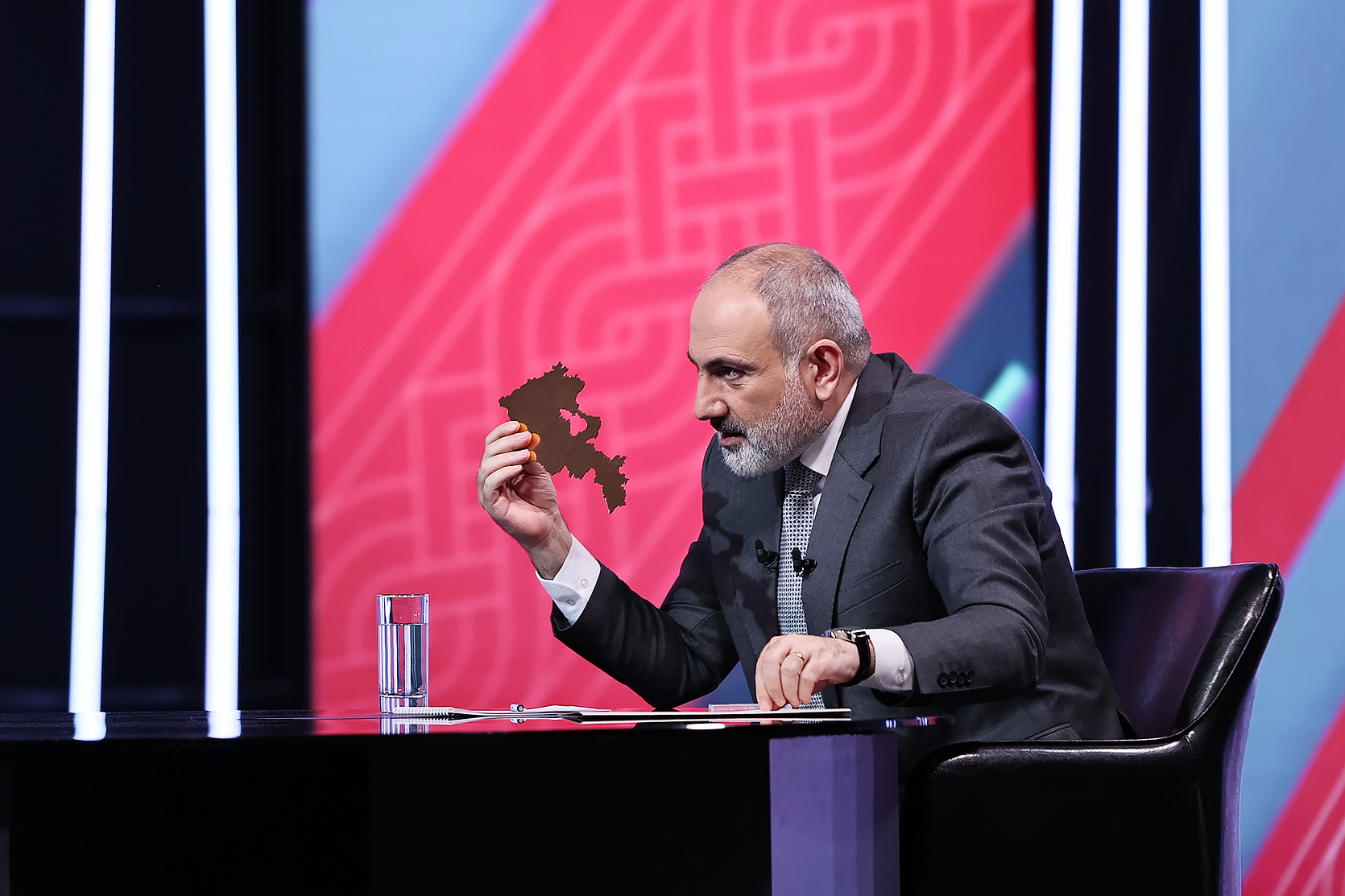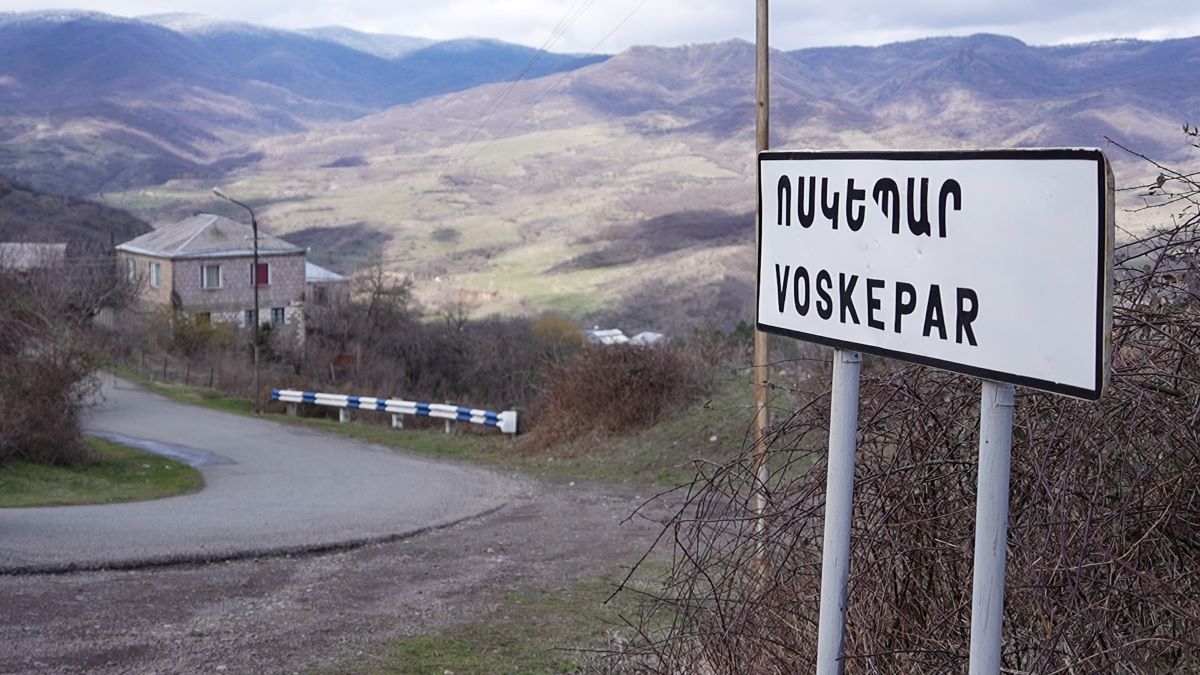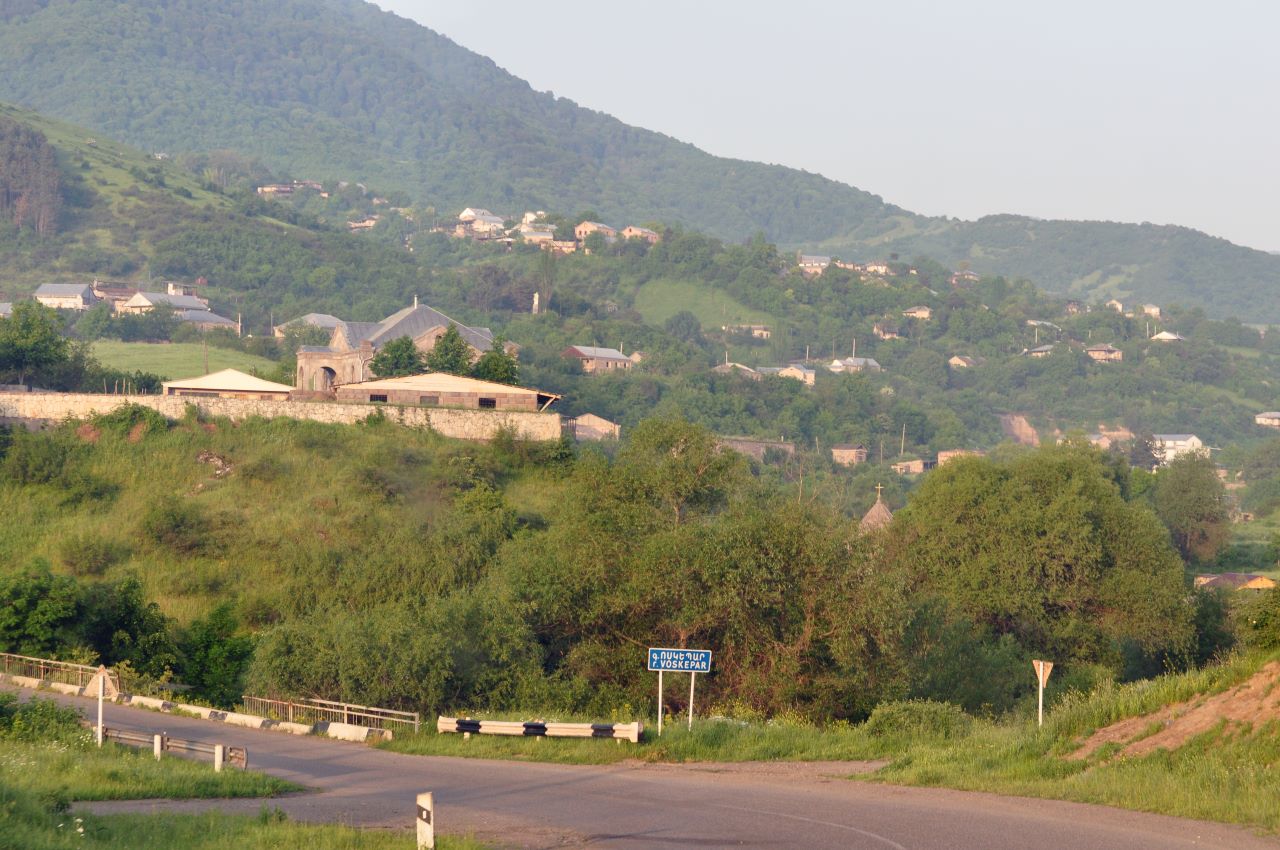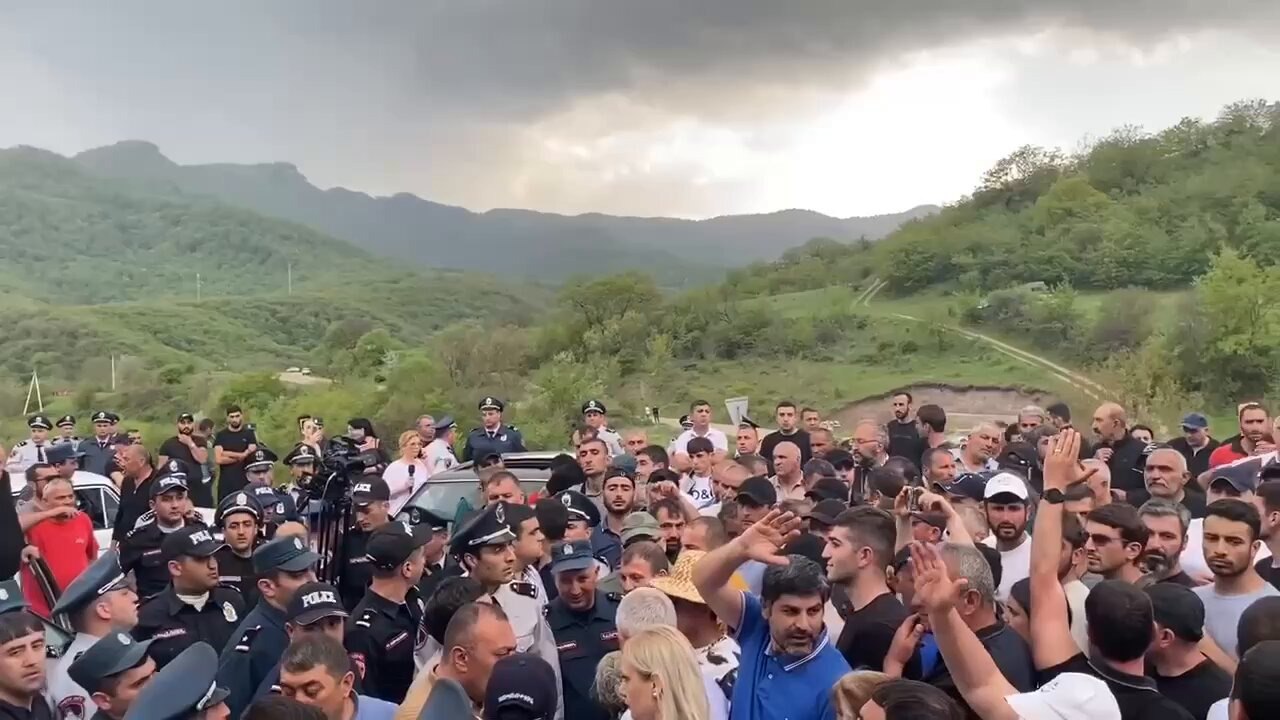
Pashinyan on delimitation and demarcation
Armenian prime minister Nikol Pashinyan warned last night that work on demarcating the border in those parts of the village of Kirants in the Tavush region, where local residents ‘do not dispute the border’, will begin soon. According to him, 3-4 points out of 11 are considered disputed.
“We will start demarcation in areas that are not contested, and we will continue work on 3-4 points where disputes exist when we come to a common denominator and can present convincing arguments that people will consider true,” Pashinyan emphasized on Armenian public television.
Following the prime minister’s speech, on the morning of May 2, the Armenian Ministry of Defense began demining the Armenia-Azerbaijan state border in the Kirants village of the Tavush region and the Kheyrimli village of the Gazakh region of Azerbaijan. However, there were reports that the police, using force, detained residents of Kirants village who were blocking the road passing through their village. They began their protest action on April 19 when news of the border delimitation process and the return of territories to four Azerbaijani villages emerged.
The Ministry of Internal Affairs reported that 30 people were brought to the Tavush regional department for disobeying the lawful demands of the police. They were all released after protocols for administrative offenses were drawn up. “There have been publications in the press alleging that the detainees were beaten during their transfer to the police department. This information does not correspond to reality,” the statement said.
- Bashkend – an enclave abandoned for 32 years
- “The negotiations between Yerevan and Baku should continue in the region.” Opinion
- “Armenia did not decide to align itself with the West just today,” – Pashinyan to British media
“The delimitation-demarcation of Armenia’s border is ongoing, not just in the village of Kirants”
The prime minister said that Kirants is involved in the process because it is bordering, nothing more. He stressed that the delimitation-demarcation process concerns Armenia’s border in general, not a specific village. However, he assured that the government prioritizes the interests of every Kirants resident:
“We will do everything to protect the rights, dignity, and safety of each of them.”
He mentioned that evidence of property ownership by local residents is being studied on a daily basis for this purpose. Pashinyan did not provide details but mentioned that some documents related to the process are marked as “secret” and “top secret.”
Touching upon the issue of security and assertions that surrendering territories to Azerbaijan puts residents of Armenian villages in a more vulnerable position, the prime minister stated:
“Today, the school [in Kirants] is directly targeted. There are no obstacles between the school and the nearest Azerbaijani position. And after the demarcation process is completed, there will be an obstacle in the form of a demarcated border.”
According to Nikol Pashinyan, ensuring a sense of security can be achieved through “a demarcated state border, peace, de-escalation, and regional stability.“
“The process began with border sections with the highest conflict potential”
The prime minister explained that border clarification started from areas with the most potential for conflict. Yerevan aims to keep the situation under control, making it as ‘manageable’ as possible. He believes that until the border is officially defined, it ‘could be a trigger for conflict.’ In his view, given these circumstances, the ongoing delimitation and demarcation process with Azerbaijan should be accelerated:
‘Many say that we are giving away four villages to Azerbaijan. But I say that we are taking back four villages from Azerbaijan as an argument – from the standpoint of legitimizing (in quotes or without) this state’s aggressive policy against Armenia on the international stage.’
The prime minister stated that Baku has long used these villages as a ‘trump card’ on the international stage to demonstrate that Armenia is acting beyond its legitimate borders.
He assured that during all negotiations on delineation, the Armenian side demanded the return of its territories. This concerns ‘vital territories of 31 villages occupied by Azerbaijani armed forces, as well as the Armenian enclave of Artsvashen’ (Azerbaijanis call this village Bashkend).
According to Pashinyan, all these territories are also included in the delineation and demarcation process. Delineation commissions must agree on which sections of the border will be demarcated after the Tavush region.
“The new security system must be based on legitimacy”
The Armenian prime minister says that the task of his government was to find a formula that would ensure the legitimate restoration not only of a specific area, but of the entire Armenian-Azerbaijani border.
He is convinced that security must be provided based on legitimate expectations and lawful demands. According to him, Armenia’s legitimacy can guarantee security even if Baku presents new unilateral demands:
“Our policy and strategy are aimed at transferring all our policies, narratives, words, and actions to legitimate grounds.”
He emphasized that Armenia must rely on itself in security matters: not changing after the failure of the CSTO (military bloc including Armenia and led by Russia) would mean “leading the country to certain destruction.”
“Not changing after the CSTO [military bloc in which Armenia is a member and operates under Russia’s leadership] failed to fulfill its obligations would mean leading the country to inevitable collapse. It is in the interest of our country to ensure its security so that ultimately we adopt a formula allowing us to live in our region without external assistance, to find that formula.“
“The logic of being an outpost was imposed not only from outside, but also from within”
Speaking about the logic of Armenia’s existence as a Russian outpost, the prime minister noted that this perception was not only external but also internal:
“When we analyze the path we have taken, we see that we ourselves positioned ourselves as an outpost.”
Responding to the remark, “being an outpost is a poor guarantee of security, but at least some guarantee,” he said:
“The formula of legitimacy in regulating relations with neighbors is a much more reliable and powerful guarantee. Legitimacy itself is a guarantee. If you want to exchange your legitimacy for someone else’s good guarantees, you are thus giving up sovereignty, statehood, and independence.“
According to him, Armenia faced a choice, and it “chose an invulnerable international order,” rejecting the formula “to exist as an outpost or not to exist.”
Pashinyan declared the delimitation and demarcation process as “the cornerstone of Armenia’s independence, sovereignty, security, and further development.” He also said that the coming years will be decisive for the country:
“If we can preserve our statehood, sovereignty, and independence in the coming years, then we can guarantee the existence of the independent state of the Republic of Armenia in the coming decades.”




